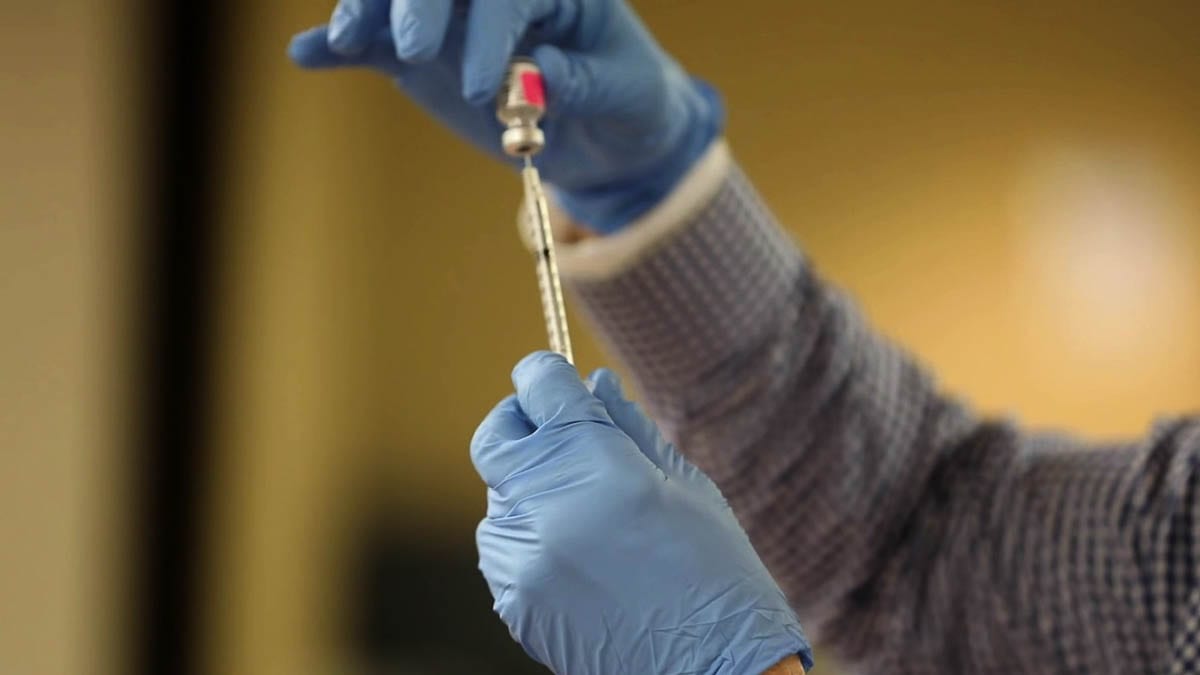Less than a third of doses sent to the area had been administered as of Monday, according to some estimates
OLYMPIA — Washington Gov. Jay Inslee said he slept poorly Monday night, worried that the state’s effort to vaccinate nearly half a million people on the frontlines of the COVID-19 pandemic was falling well short of their goals.
By Tuesday afternoon, the governor said he was feeling much better, after having a conversation with some of the CEOs of the state’s hospital systems.

“What we think is going on is we’ve had a delay in the entry of some of this information into our state’s system,” the governor said.
Inslee said a hospital system in Wenatchee had used over 96 percent of its vaccine doses, and Swedish Health Systems in the Seattle area had distributed over 60 percent.
Even as some hospitals scramble to find enough doses, others are finding that fewer healthcare workers than expected are willing to get in line.
Inslee said one survey indicated as many as 30 percent of healthcare workers remain reluctant to receive the vaccine, a development he called “surprising and disappointing.”
In Southwest Washington, the situation remains a little less clear.
During a City Council meeting on Monday, Vancouver Mayor Anne McEnerny-Ogle referred to a call with Clark County Public Health Officer Dr. Alan Melnick, speaking with elected officials from the region.
The mayor said Melnick confirmed the county had received around 17,000 doses of both the Pfizer and Moderna vaccines, but only around 5,000 had been administered as of Monday. It was unclear whether the reporting delay might have been affecting those numbers.
“Supposedly, all of our residents and staff in skilled nursing facilities have been registered to receive those vaccines,” the mayor said, “and he (Melnick) is looking into why we have less than a third of those vaccines being distributed.”

McEnerny-Ogle said Clark County Public Health is working to put together a regional team to better oversee the coordination of vaccine doses, with the goal of helping PeaceHealth Southwest Medical Center, which has been storing most of the doses, to schedule more clinics for people who qualify.
“No quick answers,” the mayor concluded, “but more news to come.”
During the Clark County Council meeting on Tuesday, Councilor Gary Medvigy also referenced the call, and asked the public to be patient as Melnick and the Board of Public Health work through the issues.
“Rest assured, the director is giving this attention, and we are going to accelerate the accessibility of these vaccinations for those that want them,” said Medvigy, adding that the hope was to eventually have drive-through mass inoculation events in the near future.
Without giving numbers, PeaceHealth Southwest Chief Medical Officer Dr. Lawrence Neville said Monday that they still had an “adequate supply” of both vaccines on hand, and were in the process of beginning second doses.
“A lot of folks are coming back for their second vaccination,” said Neville. “At the same time, we’re still trying to get the other half of our caregivers their first dose of vaccine.”
A nationwide issue that Inslee also mentioned hearing about from hospital administrators centered on the unpredictability of vaccine shipments, which are being scheduled by the federal government.
“That has made it difficult for them to schedule these large scale vaccine clinics,” the governor said. “We hope that we can do whatever we can to encourage the federal government to be timely and regular in the information they provide to us.”
While hospitals in most urban areas of the state are struggling to keep up with demand, or to schedule vaccinations, rural hospitals are often facing an opposite problem.
Cindy Chase, chief nursing officer at Ferry County Memorial Hospital in the town of Republic said they pretty quickly got through their Phase 1a people, and now are just waiting for the state to say when they can move on to others.
“I mean, in a community, they know everything and they want to know, ‘why aren’t you using your vaccines?’” said Chase. “It’s hard to hold back.”
Hospitals and clinics have also been working together to help shift supplies of the vaccine to where it’s needed, largely without a centralized structure in place. A process that PeaceHealth Senior Vice President Dr. Mark Hallett dubbed “a little clunky at this point.”
Inslee said on Tuesday that DOH will be working in the coming days on efforts to better coordinate information, help with shifting supplies to where it is needed, and pressuring the federal government to increase shipments as soon as possible.
DOH is also expected to release updated guidance on Wednesday for who will be in Phase 1b of the vaccine rollout, along with an online tool to help people determine if they might qualify.
“We are continuing to work out the wrinkles in this system, to accelerate that even more,” Inslee said, in response to a question about whether he felt the state had been caught off guard by the vaccine rollout issues. “No system in human knowledge that I am aware of has ever started a process of this dimension and not had wrinkles that they are ironing out.”




